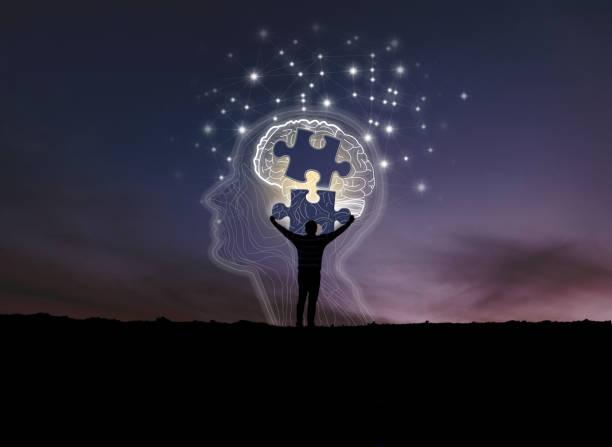Neuro Transformation is not just a buzzword; it’s a scientifically-backed process that harnesses the power of neuroplasticity, the brain’s ability to reorganize itself by forming new neural connections throughout life. At Luke Hawkins, we delve into the fascinating realm of Neuro Transformation, a groundbreaking approach that intertwines the intricacies of the human brain with transformative psychological practices. This article explores the scientific underpinnings of Neuro Transformation, shedding light on how it revolutionizes personal development and mental well-being.
The Pillars of Neuro Transformation
- Neuroplasticity: At its core, Neuro Transformation leverages neuroplasticity. This phenomenon, as explained by Harvard Health, allows the brain to adapt and change, paving the way for personal growth and healing.
- Cognitive Behavioral Techniques: These strategies, detailed by resources like Psychology Today, help in reshaping thought patterns, contributing to lasting behavioural change.
- Emotional Intelligence: As outlined by Daniel Goleman, emotional intelligence is crucial in managing emotions and enhancing personal and professional relationships.
- Mindfulness and Meditation: Practices highlighted on platforms like Headspace play a significant role in fostering a state of mindfulness, essential for self-awareness and stress reduction.
The Process of Neuro Transformation
Neuro Transformation at Luke Hawkins involves a series of steps:
- Awareness: Recognizing limiting beliefs and negative thought patterns.
- Understanding: Gaining insights into the origins and impacts of these patterns.
- Reframing: Using cognitive techniques to alter negative thoughts.
- Practicing: Implementing new behaviours and thought processes in daily life.
- Reinforcing: Continuously reinforcing these new patterns to ensure lasting change.
Real-Life Applications
Neuro Transformation has wide-ranging applications, from enhancing personal development to improving mental health. It’s particularly effective in areas such as:
- Stress Reduction: Techniques in mindfulness and meditation aid in managing stress.
- Career Advancement: Emotional intelligence and cognitive strategies foster professional growth.
- Personal Relationships: Improved self-awareness and communication skills enhance relationships.
The Science Behind The Success
Research in neuroscience and psychology underpins the effectiveness of Neuro Transformation. Studies, like those found on PubMed, provide evidence of the brain’s adaptability and the efficacy of cognitive-behavioral techniques.
Understanding The Brain’s Role in Neuro Transformation
The human brain is an extraordinary organ, constantly evolving and adapting. Neuro Transformation taps into this dynamic nature of the brain, particularly focusing on:
- Neural Pathways: Every thought, emotion, and behavior we exhibit is linked to neural pathways in our brain. Neuro Transformation aims to create new, positive pathways and weaken the old, negative ones, a process known as synaptic pruning, as explained by Neuroscientifically Challenged.
- Brain Chemistry: Neurotransmitters play a crucial role in our mood and thought processes. Techniques used in Neuro Transformation can influence the release of neurotransmitters like serotonin and dopamine, enhancing mood and cognitive function, as detailed by ScienceDirect.
The Role of Emotional Intelligence in Neuro Transformation
Emotional intelligence is a cornerstone of Neuro Transformation. It involves:
- Self-awareness: Understanding one’s emotions, strengths, weaknesses, and drives.
- Self-regulation: The ability to control or redirect disruptive impulses and moods.
- Motivation: A passion to pursue goals with energy and persistence.
- Empathy: Considering others’ feelings, especially when making decisions.
- Social Skills: Managing relationships to move people in desired directions.
By enhancing these aspects, Neuro Transformation aids in personal and professional realms, making individuals more adept at handling interpersonal dynamics and self-management. For more insights and guidance, we invite you to visit our blog.
Cognitive Behavioral Techniques in Neuro Transformation
Cognitive Behavioral Techniques (CBT) are integral to Neuro Transformation. They involve identifying negative thought patterns and challenging them. This process includes:
- Identifying Distorted Thinking: Recognizing and understanding the patterns of unhelpful thinking.
- Reframing Thoughts: Actively challenging and changing negative thoughts to more positive ones.
- Behavioral Experiments: Testing these new thought patterns in real-life situations to build evidence for their effectiveness.
CBT’s effectiveness in various mental health issues, including anxiety and depression, is well-documented in resources like Beyond Blue.
The Impact of Neuro Transformation in Various Life Aspects
Personal Development
Neuro Transformation encourages individuals to explore and understand their inner selves, leading to:
- Increased Self-Esteem: As individuals understand and accept themselves more, their confidence naturally increases.
- Better Decision Making: With improved emotional intelligence and cognitive skills, decision-making becomes more balanced and effective.
Professional Growth
In the professional sphere, Neuro Transformation can lead to:
- Enhanced Leadership Skills: Leaders with high emotional intelligence can manage teams more effectively.
- Improved Productivity: Mindfulness and stress reduction techniques can lead to better focus and efficiency at work.
Relationship Enhancement
Neuro Transformation also positively impacts personal relationships by:
- Improving Communication Skills: Understanding and regulating emotions can lead to more effective and empathetic communication.
- Building Stronger Bonds: Emotional intelligence fosters deeper connections and understanding between individuals.
The Science Supporting Neuro Transformation
The efficacy of Neuro Transformation is backed by numerous scientific studies. For instance, research published in the Journal of Cognitive Neuroscience shows that mindfulness meditation can lead to changes in brain regions involved in learning, memory, and emotion regulation.
Tailoring Neuro Transformation to Individual Needs
At Luke Hawkins, we understand that each individual is unique. Therefore, our approach to Neuro Transformation is not one-size-fits-all. We consider personal histories, individual challenges, and specific goals to tailor a program that best suits each client.
Continuous Learning and Adaptation
The field of Neuro Transformation is ever-evolving, with new research and techniques continually emerging. At Luke Hawkins, we stay abreast of the latest developments, ensuring that our methods are not only scientifically sound but also at the cutting edge of personal development.
Conclusion
Neuro Transformation is more than a method, it’s a journey towards a better self. At Luke Hawkins, we are committed to guiding you through this transformative process. If you’re ready to embark on this journey, contact us to discover how we can tailor our approach to your unique needs.
Frequently Asked Questions
Q1: What is Neuro Transformation?
Neuro Transformation is a process that combines neuroscience and psychological techniques to foster personal growth and mental well-being.
Q2: How does Neuro Transformation work?
It works by leveraging neuroplasticity, cognitive behavioral techniques, emotional intelligence, and mindfulness practices to bring about positive changes in thoughts, emotions, and behaviors.
Q3: Can Neuro Transformation help with stress?
Absolutely. Techniques in mindfulness and meditation, integral to Neuro Transformation, are effective in managing and reducing stress.
Q4: Is Neuro Transformation scientifically backed?
Yes, it is supported by research in neuroscience and psychology, demonstrating the brain’s adaptability and the effectiveness of cognitive-behavioral techniques.
Q5: How long does it take to see results from Neuro Transformation?
The time frame varies for each individual, but with consistent practice, changes can often be observed within a few weeks to months.
Q6: Can Neuro Transformation improve professional life?
Definitely. It enhances emotional intelligence and cognitive skills, which are crucial for career advancement and professional relationships.






